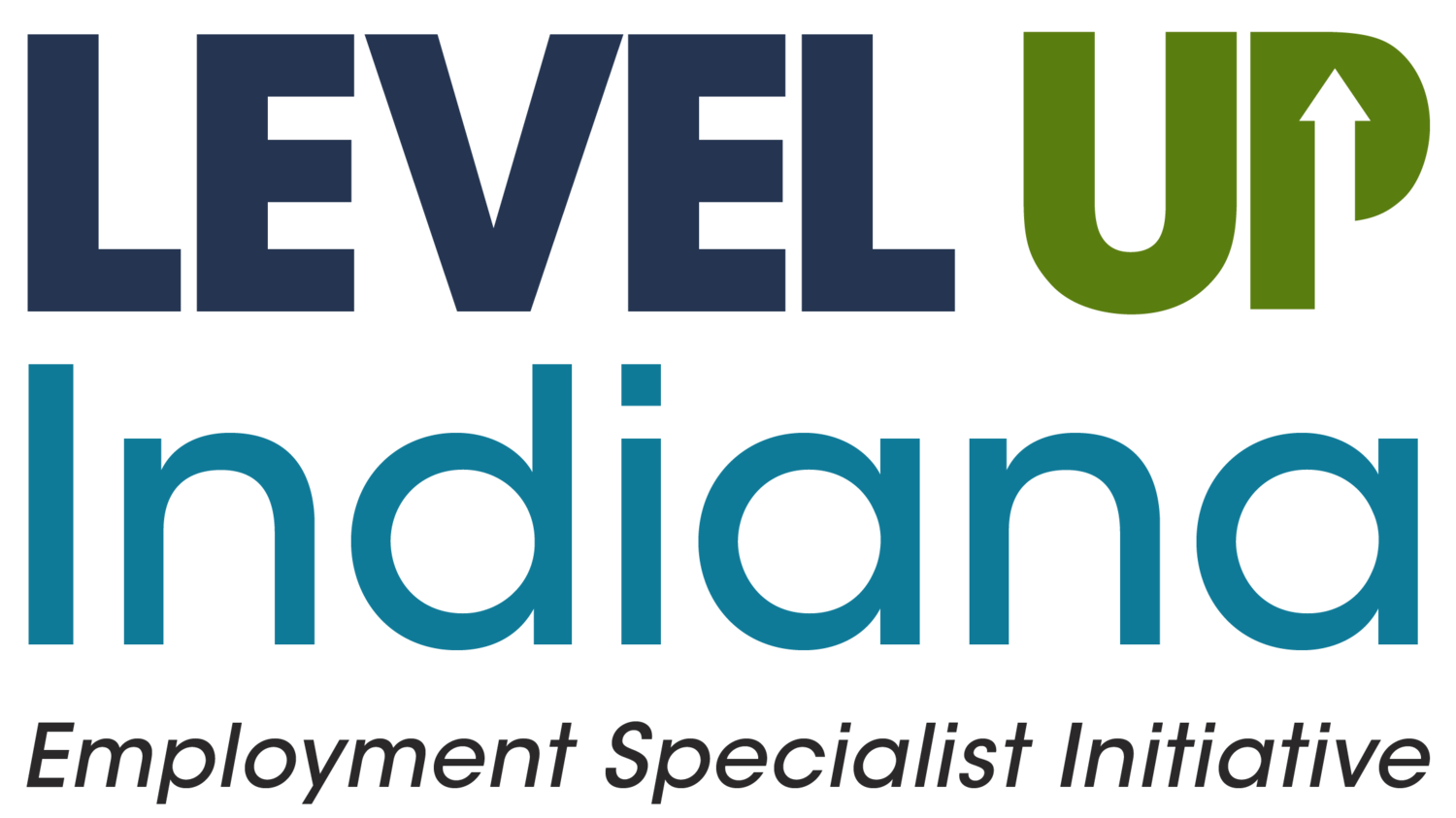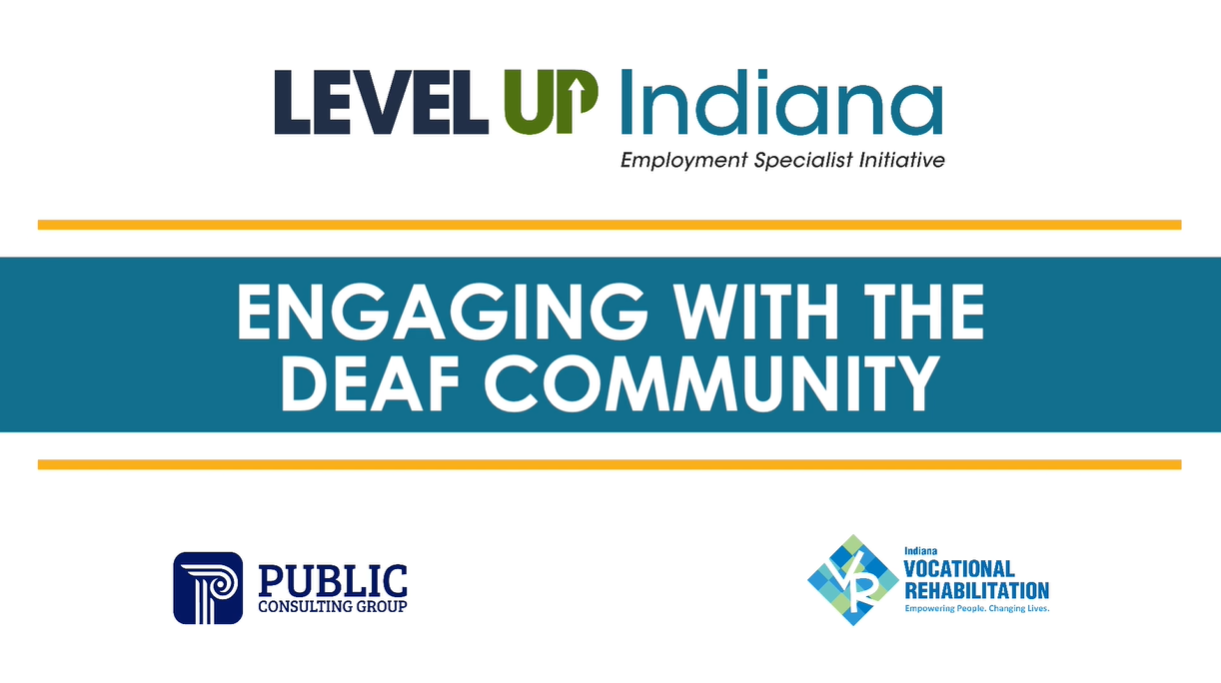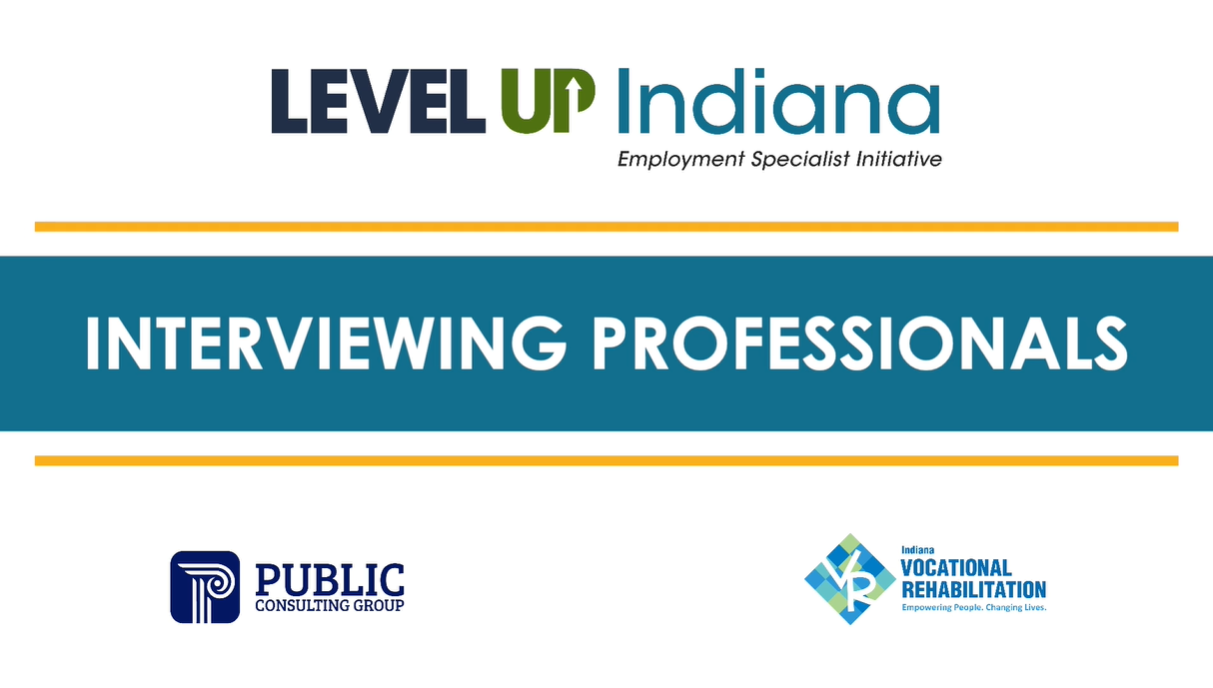
Accessibility
Make sure your services are always ready to help the people who need them.
Are You Ready to Help All Your Clients?
The more people who can take advantage of employment services, the greater your impact can be. To help you support more clients, this page includes resources designed to help you make your services as accessible as possible.
Below you can find videos and guides covering:
Disability disclosure and reasonable accommodations
Working with Deaf/Hard of Hearing individuals
We’re always adding new content, so check back often.
Disability Disclosure and Reasonable Accommodations
Learn from Barry Whaley, Project Director of the Southeast ADA Center, about disability disclosure and accommodations. He answers these questions and more:
Are people obligated to disclose a disability?
What’s the “right time” to disclose a need for accommodation?
What is the role of the employment specialist in disclosure and accommodation?
What can be done to ensure that the process is respectful of the employee with a disability?
What are the employer’s responsibilities?
About Barry Whaley
Barry Whaley works at the Burton Blatt Institute, Syracuse University. He is the Co-Principal Investigator and Project Director of the Southeast ADA Center, Principal Co-Collaborator with the University of Leeds (UK) Inclusive Public Spaces project, Co-Collaborator with the University of Queensland (AU) Gender, Equity, Disability, and Social Inclusion Mainstreaming Short Course, and Principal Investigator of the Mid-Atlantic Youth and Self-Advocacy project. His current research examines the impact of intersectionality of race and disability on three ADA-related issues: 1) employment, 2) access to digital technology, 3) long and short-term poverty.
Barry is an alumnus of Indiana University and holds a Master of Science in Mediation, Arbitration, and Alternative Dispute Resolution from Sullivan University.
Serving Deaf and Hard of Hearing Clients
It’s important to make your services as inclusive and accessible as possible. That includes helping people who are Deaf or Hard of Hearing (HoH)
The first video covers background on the Deaf community and culture, best practices for serving D/HoH individuals, and additional resources that may be available.
The videos below offer first-hand insights from members of the Deaf community.
Additional Resources for Supporting D/HoH Individuals
The following resources cover more topics that can help you support D/HoH individuals seeking employment services.
Example Communication Accommodation Request (CAR) forms:
ABLE (Achieving a Better Life Experience) Account- accessible resources produced by the deaf and hard of hearing community members.
The 29-minute video offers a clear explanation of the benefits these types of financial accounts can provide people with disabilities (includes English and Spanish voiceover with captions).
The accessible video is a valuable tool for disability advocates and stakeholders to promote financial wellness and community inclusion for people with disabilities. For example, teachers and financial advisors now have an additional tool to positively impact the lives of those within deaf and hard of hearing communities across America.





